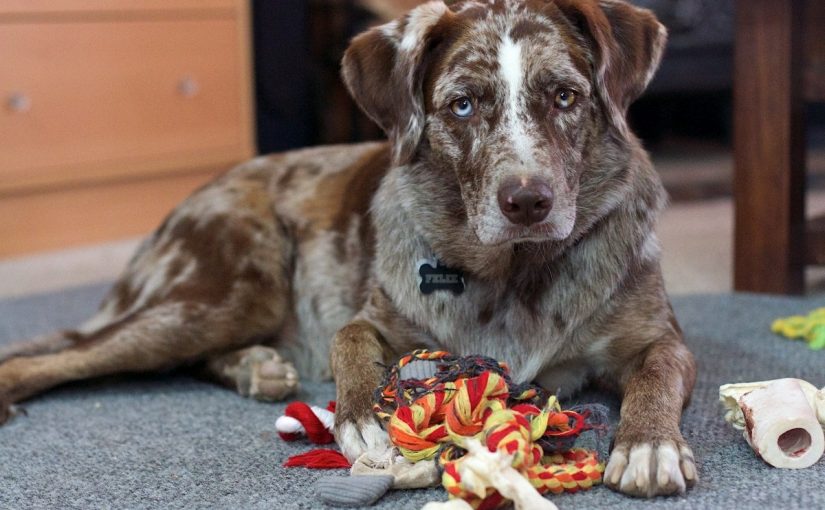As pets live longer, their needs in later years become increasingly important. One concern that affects many aging dogs and cats is cognitive dysfunction syndrome in pets. This condition, sometimes called pet dementia, impacts memory, awareness, and behavior. Understanding the signs, diagnosis, and support strategies can help pet owners provide the best possible care for their senior companions.
What Is Cognitive Dysfunction Syndrome in Pets?
Cognitive Dysfunction Syndrome (CDS) is a progressive neurodegenerative disorder in older dogs and cats. It is similar to Alzheimer’s disease in humans and leads to gradual loss of cognitive function. CDS is not a normal part of aging, though it becomes more common in senior pets. The exact cause is not fully understood, but changes in the brain, such as the buildup of abnormal proteins and oxidative damage, play a role.
Early Signs of Cognitive Dysfunction in Senior Dogs and Cats
Recognizing the signs of pet dementia early can make a significant difference in your pet’s quality of life. Symptoms often develop slowly and may be mistaken for normal aging. Common signs include:
-
Disorientation: Pets may get lost in familiar areas or appear confused.
-
Altered interactions: Changes in how pets relate to people or other animals, such as decreased interest or increased clinginess.
-
Sleep-wake changes: Restlessness at night, increased daytime sleeping, or vocalizing overnight.
-
House soiling: Senior pets may forget previously learned house-training or litter habits.
-
Changes in activity: Loss of interest in play, decreased exploration, or repetitive behaviors.
-
Anxiety or irritability: Increased agitation, barking, or meowing for no clear reason.
Common Behavioral Changes in Dogs vs. Cats
Senior dog dementia may present as pacing, staring into space, or barking at nothing. Cat cognitive dysfunction often appears as vocalizing at night, aimless wandering, or decreased grooming. These differences highlight the need to observe each pet’s unique behavior and routines.
Diagnosis: How Vets Identify CDS
Veterinarians diagnose cognitive dysfunction syndrome in pets based on history, clinical signs, and by ruling out other medical problems that can cause similar changes. Your veterinarian may ask detailed questions about your pet’s daily habits and perform a physical and neurological exam. Laboratory tests or imaging may be recommended to rule out conditions like arthritis, kidney disease, vision loss, or pain, which can also affect behavior.
If CDS is diagnosed, early intervention can help slow its progression and improve comfort.
Support Strategies and Daily Care for Pets with Dementia
While there is no cure for cognitive dysfunction syndrome in pets, several strategies can help maintain your pet’s quality of life:
-
Routine and predictability: Keeping a consistent schedule for feeding, walks, and play helps reduce anxiety and confusion.
-
Environmental enrichment: Provide stimulating toys, gentle exercise, and safe opportunities for exploration. Puzzle feeders and interactive games can help keep the brain active.
-
Safe environment: Block off stairs, pools, or other hazards if your pet becomes disoriented.
-
Patience and positive reinforcement: Use gentle reminders for house training or litter box use and avoid punishment.
-
Monitor diet: Some veterinary diets and supplements, such as antioxidants and omega-3 fatty acids, may support brain health. Always consult your veterinarian before adding supplements.
Medical Treatments and Supplements
Veterinarians may prescribe medications that can improve symptoms or slow the progression of senior dog dementia or cat cognitive dysfunction. These treatments can help increase alertness and manage anxiety. Discuss all available options with your veterinary team to determine the best plan for your pet.
The Importance of Routine and Monitoring
Keep a diary of your pet’s behaviors, sleep patterns, and appetite changes. This record helps track symptoms and gives your veterinarian valuable information for ongoing management.
When to Consult Your Veterinarian About Cognitive Changes
It’s important to contact your veterinarian if you notice any new or worsening changes in your pet’s behavior, memory, or house habits. Early veterinary assessment helps rule out other medical causes and enables prompt support for cognitive dysfunction syndrome in pets.
Supporting Quality of Life for Senior Pets with CDS
With patience, understanding, and veterinary partnership, many pets with CDS can enjoy their senior years in comfort. By learning the signs of pet dementia and providing supportive care, owners play a vital role in helping dogs and cats live happier, more fulfilled lives as they age.
















